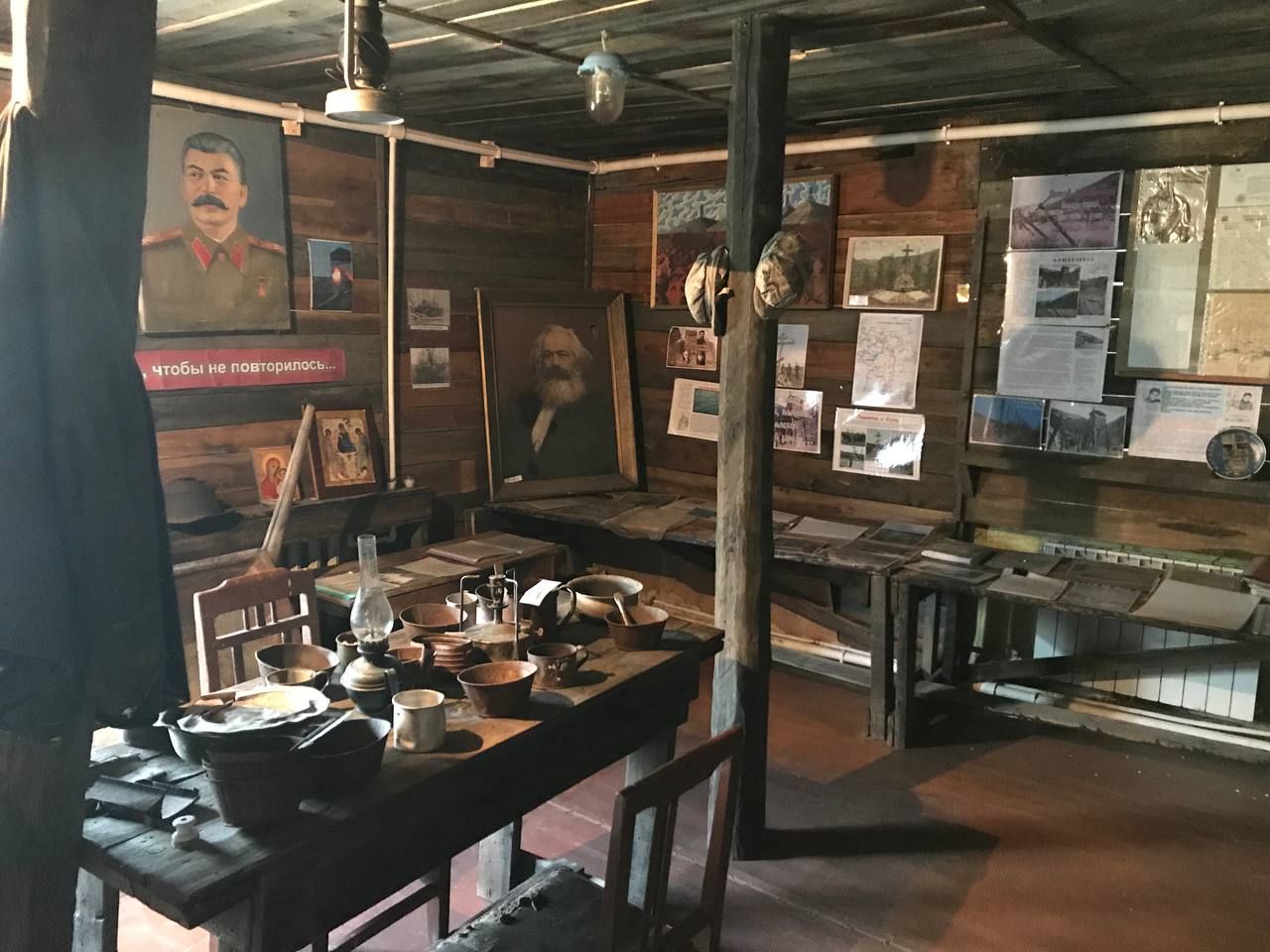Séminaire des Études Sibériennes – Séance 3
Chers collègues,
Le prochain séminaire des études sibériennes / Siberian Studies Seminar, organisé par Dmitriy Oparin (UMR Passages) et Virginie Vaté (GSRL) aura lieu le mercredi 10 janvier 2024 de 14h à 16 h.
Nous accueillerons Vladislav Staf, doctorant à l'Université Sorbonne Nouvelle et à l'Université Paris-Sorbonne (Paris IV). Il effectuera une présentation (en anglais) intitulée "Memorialization of the Gulag and Stalin’s terror in Russian museums".

© Vladislav Staf
Résumé
In my research project, first of all I’m interested in the analysis of memorial museums of the Gulag that were founded since 1989 in many Russian regions. In today’s post-Soviet Russia, there are approximately a hundred museums with displays offering information about the repressions. That being said, most but not all of these are Russian local history museums (kraevedcheskie muzei), which often provide very superficial information about the camps and repressions. Museums of the Gulag are sites of memory: “static spaces where the past flickers and endures” (P.Nora), but they differ in their structure. Based on my research, I distinguish three types of Gulag memorial museums to show their diversity and heterogeneity: museums at urban sites associated with the Gulag (such as NKVD buildings or prisons), museums in former concentration camps, and museums that have become new sites of memory but whose location is historically unrelated to the Gulag. Some of these museums are private, which also plays an important role in their appearance.
My main research question is try to figure out who created these museums. When I finished my fieldwork I’d visited eleven museums - all memorial museums of the Gulag in Russia (in terms by P.Williams) created from 1989 to 2015: the museums work only engaged in the work of preserving the memory of the Gulag. Until the beginning of 2010s all memorial museums of the Gulag were created like local initiatives rather than as part of official government- sponsored efforts, although they were later supported (or not) by local authorities. The creation of memorial museums of the Gulag was initiated by museum workers and professional historians, immediately after the collapse of the USSR many of the founders of such museums were amateurs. Consequently, the exhibitions often presented Stalin’s repressions in specific ways that today seem ambiguous. So, my two main questions are who and why started to create these museums, what they think about the Gulag system and Joseph Stalin.
Le séminaire aura lieu au Campus Condorcet, en salle 5.067 du bâtiment de recherche nord. Il est également possible d'y assister en ligne (voir informations ci-dessous).
Campus Condorcet -14 cours des Humanités, 93322 Aubervilliers (France), Bâtiment de recherche nord, room 5.067 (5e étage), Métro Front Populaire (Ligne 12) /RER B La Plaine – Stade de France
Vous munir d’une pièce d’identité pour obtenir un badge au comptoir, au rez-de-chaussée du bâtiment Nord, afin de pouvoir accéder aux étages, en cas de difficultés, appeler + 33 6 51 10 30 04
Lien pour y assister en ligne : https://meet.goto.com/labgsrl/séminaireétudessibériennes
---------
Siberian Studies Seminar 2023-2024, organized by Dmitriy Oparin (Passages) & Virginie Vaté (GSRL)
One Wednesday per month from 14:00 to 16:00
With the collaboration of D. Brandisauskas (Vilnius University), J.O. Habeck (Hamburg University), N. Mamontova (University of Birmingham), O. Povoroznyuk (University of Vienna), P. Schweitzer (University of Vienna), F. Stammler (University of Lapland), & V. Vladimirova (Uppsala University)
PROGRAM 2023-2024
- November 22, 2023. Igor Krupnik, Smithsonian Institute “JESUP GENEALOGY”: 1940s-1970s – An Autobiographical Upstreaming
- December 13, 2023. Asya Karaseva, University of Tartu Preparing for freezing on the road: Uncertain mobility and grassroots road rescue infrastructure in Kolyma, Russia
- January 10, 2024. Vladislav Staf, Université Sorbonne Nouvelle & Université Paris-Sorbonne (Paris IV) Memorialization of the Gulag and Stalin’s terror in Russian museums
- February 7, 2024. Joachim Otto Habeck, University of Hamburg Arrivals and Departures: Reconstituting "the Field” of Anthropological Research
- March 20, 2024. Pascale Marie Milan (IFRAE, Paris & LARHA, Lyon) & Clément Jacquemoud (ANR CEREMONIAC, Centre Émile Durkheim, CNRS/Université de Bordeaux) Presentation of the thematic volume "Logics, Stakes and Limits of Cultural Heritage Transmission in China, Russia and Mongolia”, EMSCAT n°54, co-edited by Anne Dalles Maréchal, Clément Jacquemoud, Pascale-Marie Milan et Yann Borjon-Privé
- April 3, 2024. Roza Laptander, University of Hamburg When we geese were hiding from hunters, I thought: “I am a human ‐ I must survive!”. Transformation of shamans into totem animals and birds on the example of two Nenets texts
- May 15, 2024. Nadezhda Mamontova, Newton International Fellow (School of Geography, Earth and Environmental Sciences, University of Birmingham, UK) The multiple voices of geological ontologies amongst the Evenki
- June 12, 2024 (in collaboration with the Seminar of Mongolian Studies, organized by C. Charleux & G. Delaplace) Ivan Peshkov, Adam Mickiewicz University in Poznan, Poland Messianic temporality and border: Eschatological temporality and new ethics of Chinese Russians
Nous espérons vous retrouver nombreux!
Dmitriy Oparin (dimaoparin@hotmail.com) & Virginie Vaté (virginie.vate@netcourrier.com)
--------------------
Virginie Vaté (Vaté-Klein)
Chargée de recherches au CNRS (GSRL)
Chercheuse associée au Centre français de recherche en sciences sociales (CEFRES) de Prague
Membre du Projet ERC BOAR https://www.wildboar.cz/